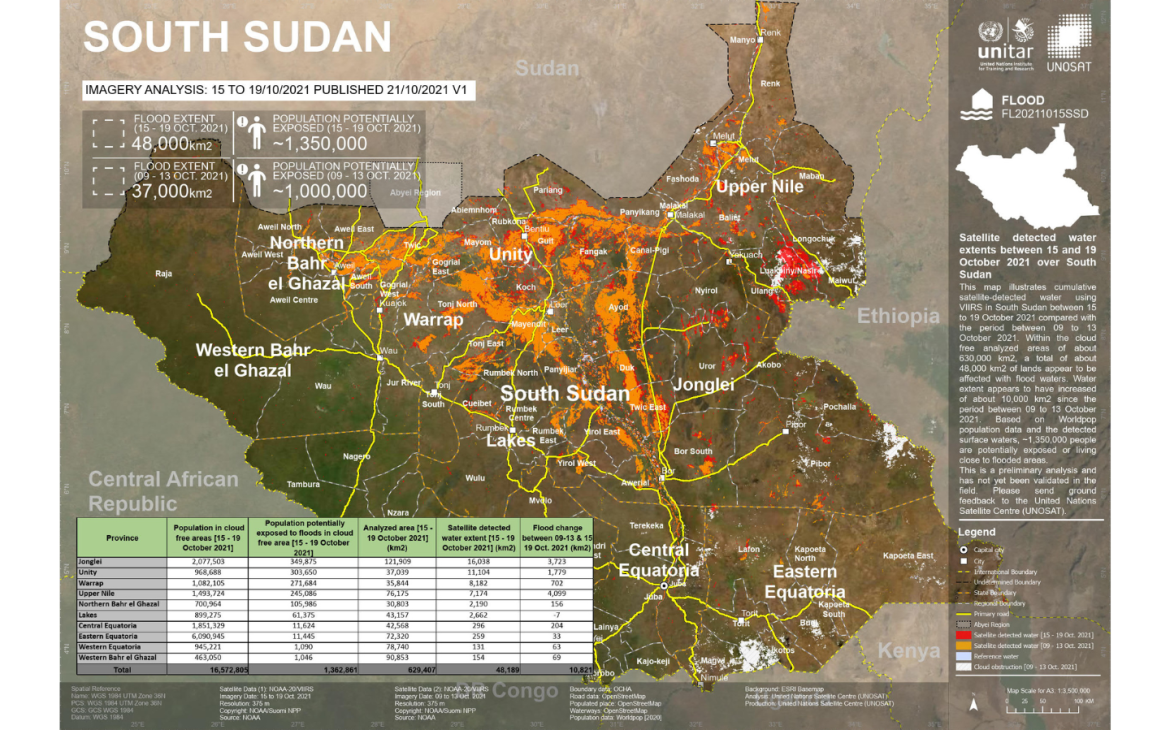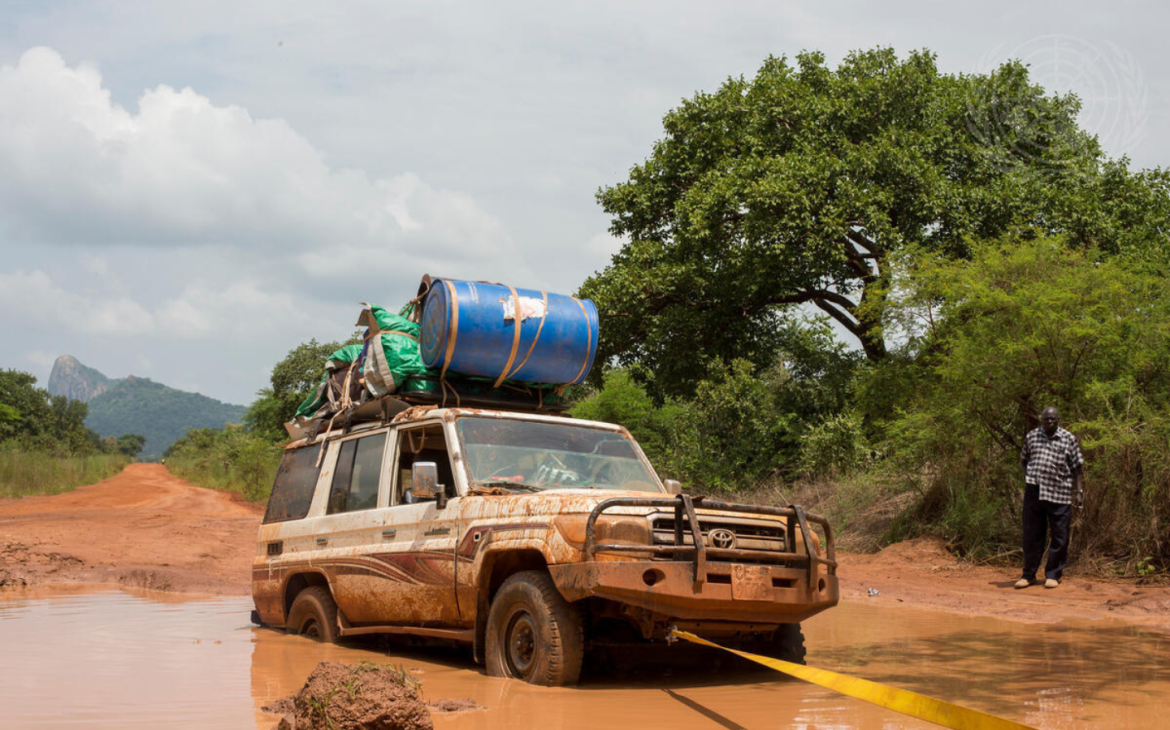Name: W.A. Kumudu Sanjeewa
Title: Head of Communications and Information Management (CIMU), United Nations Office for the Coordination of Humanitarian Affairs
Country: South Sudan
Partnership: United Nations Office for the Coordination of Humanitarian Affairs
South Sudan is ranked among the five countries in the world most vulnerable to the impacts of climate change. In the past years, the country has seen wet seasons becoming wetter, and dry seasons getting even drier. As a result, devastating floods are mercilessly hitting its population with increasingly destructive power each year. In 2021 alone, roughly over 650,00 individuals were reported to have their homes, farms and markets swallowed by overflooded waters. Arafat Jamal, the ad interim Humanitarian Coordinator in South Sudan until December 2021, described then the people impacted as “casual victims of the rest of the world’s carbon-fuelled prosperity”.
While these numbers are alarming, personal reflections from South Sudanese people provide an honest insight into what they experience. People who were already living in the open, under trees or in abandoned school buildings due to floods that devasted their homes in 2020, were forced to move yet again in search of higher and dry grounds. With most of their crops lost and livestock barely surviving, families waded through crocodile and snake-infested waters in search of lily bulbs to eat. “Due to the soil condition in South Sudan, whenever there is a flood the water remains for weeks, sometimes even months”, explained W.A. when working as part of teams responding to people impacted by conflict situations, flooding and other humanitarian and disaster operations.
He has worked in the Philippines, Sri Lanka, Sierra Leone, Kenya and Syria before going to South Sudan, where he works in response to another severe humanitarian crisis impacting vulnerable people. “In normal circumstances, road access in South Sudan can be a challenge. With the flood, physical access to affected areas becomes even more challenging. Many roads are covered with water. We depend on information sent by our colleagues in field locations to get updates on people’s situations. However, even with this information, it is impossible to get a detailed picture of the damage caused by flood impact and locate people that are in need of assistance. For people who lost their homes and their main source of living, every minute they suffer must feel like an eternity. So, we need to see the extent of the flood immediately to help guide how the response to their needs is undertaken. Therefore, in humanitarian disasters such as this, the first thing that we ask for is satellite images.”
UNOSAT reached out to request satellite images as well as assistance from analysts. “As OCHA South Sudan, we neither have the technical capacity in house to do satellite imagery and the needed analysis nor do we have the time. UNOSAT provides this analysis that shows the number of population, areas affected, and estimated people exposed. All this gives us an amazing immediate big picture of the real situation. Then, the intercluster coordination group undertakes an in-depth analysis to help shape the response. It means that the initial analysis feeds into the discussions of the decision makers”, he explains adding that he values UNOSAT’s work and swift action. “For me, this is an excellent collaboration, the technical as well as the managerial level went beyond expected.”
With the necessary information in their possession, OCHA went on to coordinate the humanitarian response. Moving forward, W.A. believes that these maps will continue to be important should another similar disaster happen in the future. “With these products, OCHA will be able to make a comparative analysis with previous years. So, if South Sudan experience floods next year, we can look back on those and see what areas were frequently affected by floods in the past and make predictions, which will help us be better prepared to respond instead of waiting until the disaster happens to make some decisions”. And should it happen, UNOSAT will be ready to support W.A. and his colleagues at OCHA to promptly assist South Sudan’s people.



